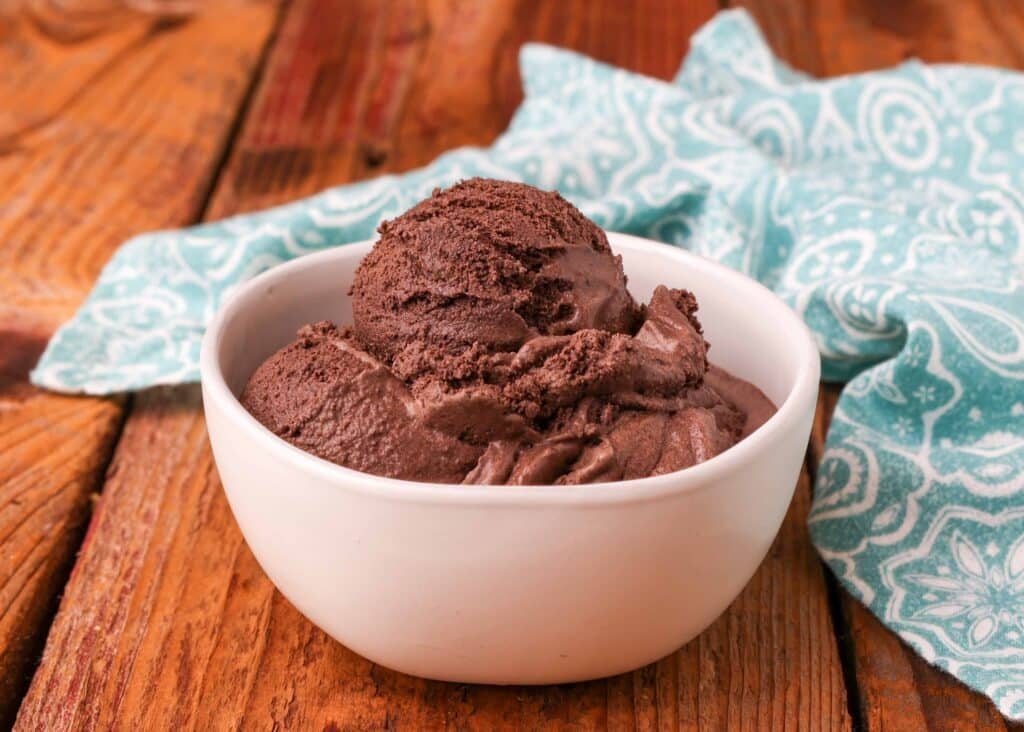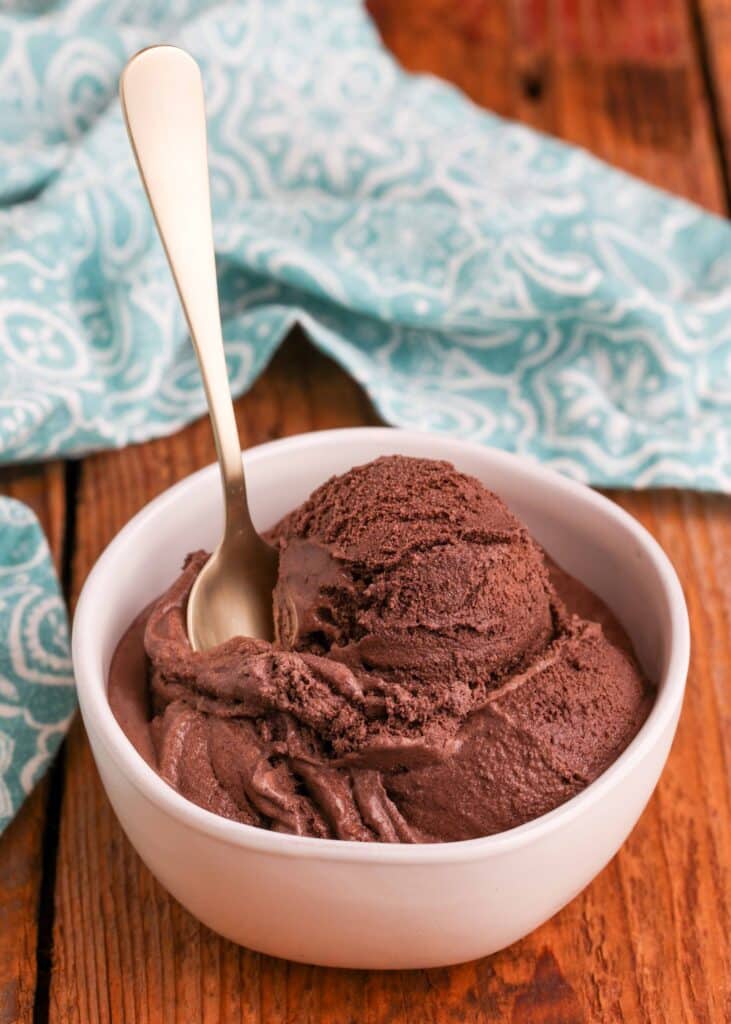Dark chocolate ice cream delivers just the right amount of sweetness, it’s the perfect treat for chocolate lovers who enjoy a bittersweet twist.

Dark Chocolate Ice Cream
While my sweet tooth has mellowed quite a bit over the past few years, I still enjoy a piece or two of dark chocolate most days – just a bite or two goes a long way to satisfy a chocolate craving.
Dark chocolate can be a bit of an acquired taste, depending on just how dark the chocolate happens to be. And two of my kids gravitate to milk chocolate over dark. (Where did I go wrong??) They’d never reach for super dark or bittersweet chocolate on their own.
That said, I’m thrilled to tell you that this dark chocolate ice cream received rave reviews from everyone in the family. The sweet cream balances the dark chocolates excellently.
Dark Chocolate Desserts
Dark chocolate has long been my preference for baking. These Dark Chocolate Toffee Cookies are crispy, chewy cookies with a deep chocolate flavor, toffee crunch, and gooey chips.
Dark chocolate brownies are a dessert I make at least once a month – scoop some of this ice cream over them for a sundae that might make you swoon. Classic blondies are made even better with generous handfuls of chopped walnuts and dark chocolate chips.
The combination of cocoa powder and melted dark chocolate chips in this ice cream creates a deeply rich chocolate flavor. The result is quite possibly the richest chocolate ice cream I have ever made.
As the percentage of cacao increases, the chocolate becomes darker and more bitter. If you’re a die-hard fan of dark chocolate, opt for chocolate with a higher cacao percentage. In my experience making ice cream, I’ve discovered that the sweet spot for dark chocolate is usually around 60% cacao.
This strikes the desired balance between sweetness and bitterness, without veering anywhere near the overwhelming sweetness of milk chocolate. However, if you desire an even more intense and robust chocolate flavor, go for 85% cacao.
 Read more
Read more